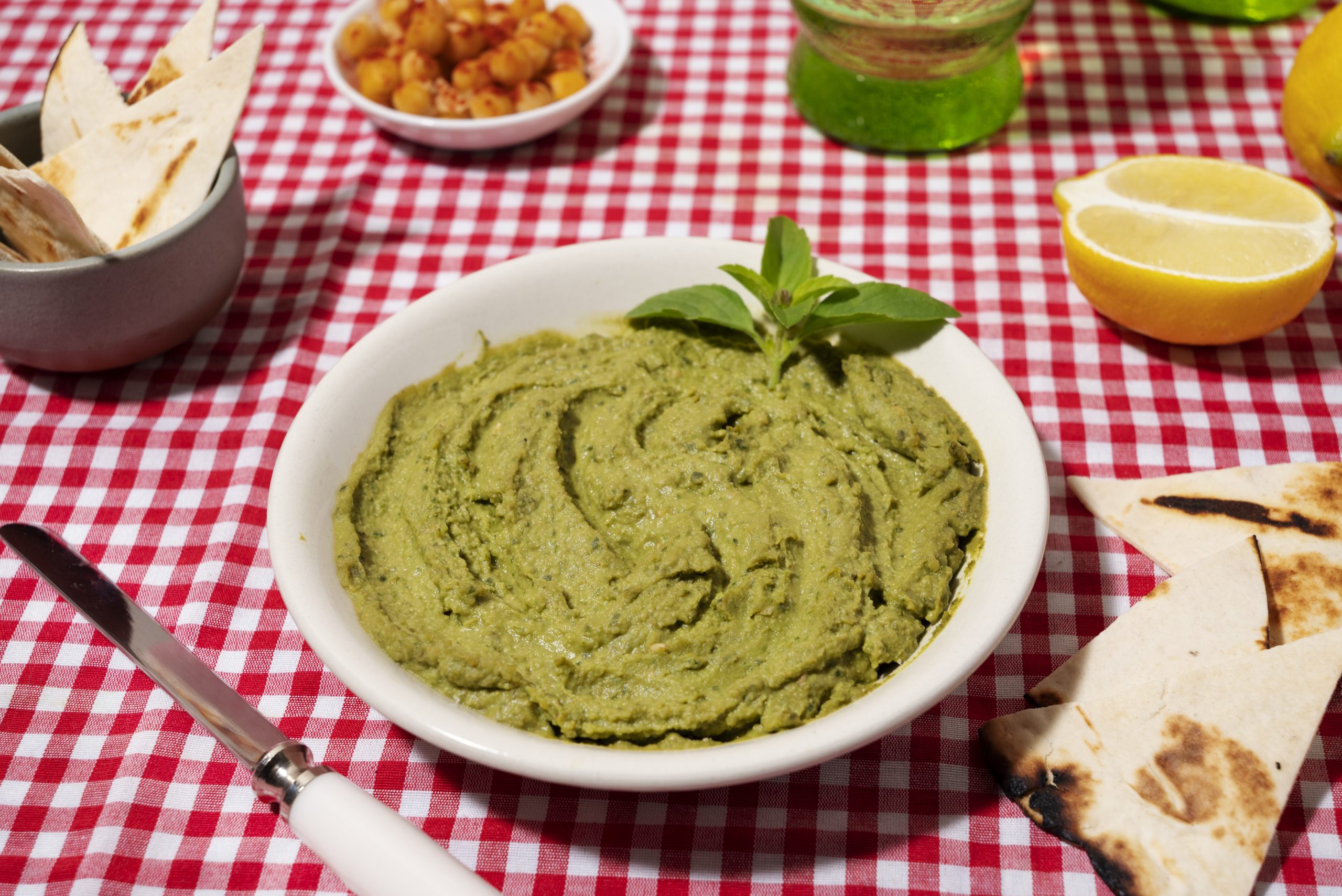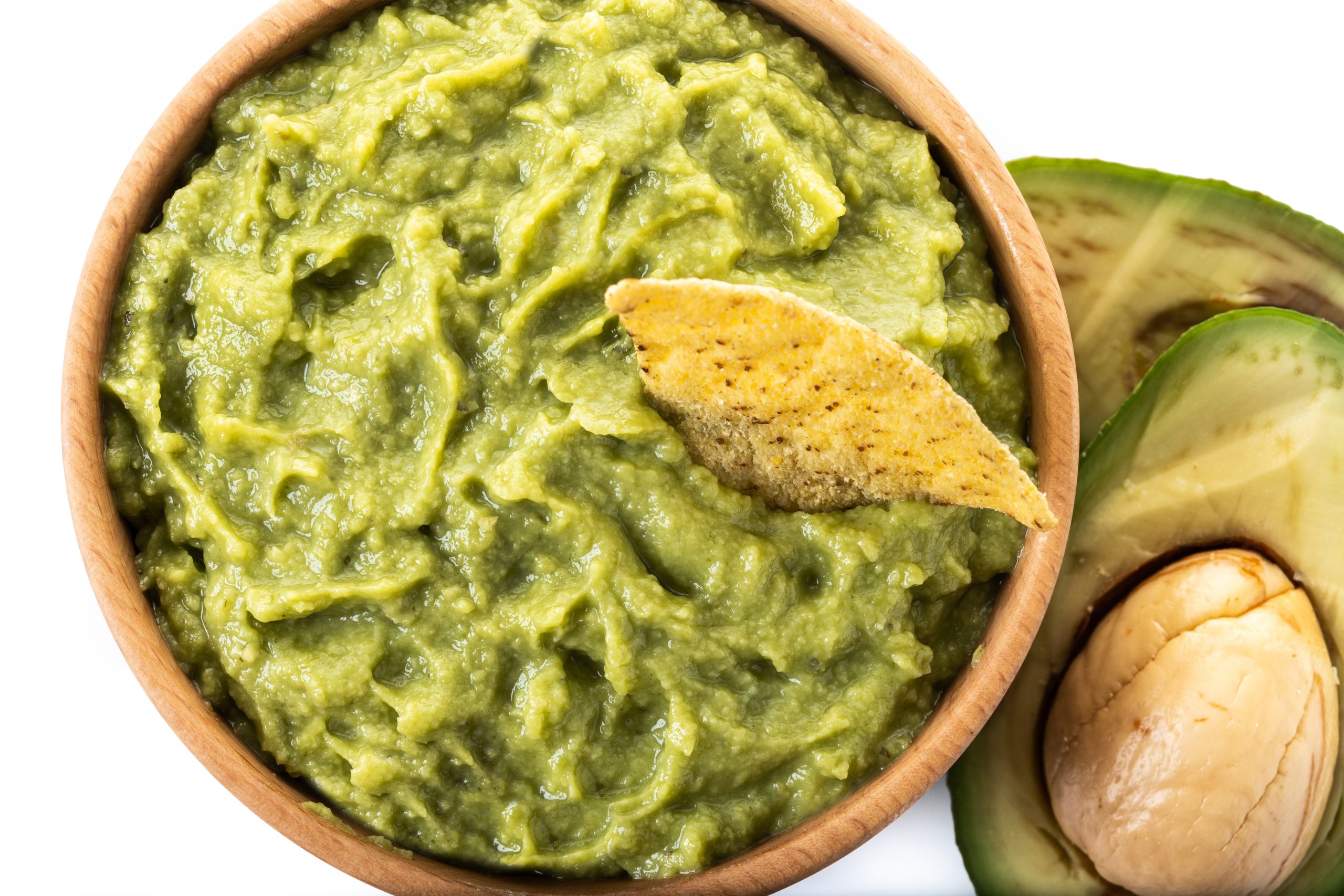Zucchini hummus is a variation of traditional hummus that replaces or complements the use of chickpeas with it as the primary ingredient. It is a creamy and flavorful dip or spread that combines cooked or roasted zucchini with ingredients such as tahini, garlic, lemon juice, and seasonings.
Zucchini hummus offers a lighter and fresher alternative to classic hummus, while still providing a creamy texture and a tangy, savory taste. It can be enjoyed as a dip with bread, crackers, or vegetable sticks, or used as a spread in sandwiches or wraps.
How to Make Zucchini Hummus?
Zucchini hummus is a variation of traditional hummus that incorporates zucchini as one of the main ingredients. It offers a lighter and fresher twist to the classic chickpea-based dip. Here’s a general overview of how it is typically prepared:
Ingredients:
- Zucchini: Fresh zucchini is the star ingredient in it. It is usually peeled and chopped before being cooked or roasted.
- Chickpeas: While zucchini is the primary component, chickpeas are often included to provide texture and the characteristic creaminess of hummus. Cooked or canned chickpeas can be used.
- Garlic: Garlic adds flavor to the hummus. The amount can be adjusted based on personal preference.
- Tahini: Tahini, a paste made from ground sesame seeds, is a key ingredient in traditional hummus and is commonly used in zucchini hummus as well. It contributes to the creamy consistency and nutty flavor.
- Lemon Juice: Freshly squeezed lemon juice adds a tangy and bright note to the hummus.
- Olive Oil: High-quality olive oil is typically used in zucchini hummus for flavor and smoothness. Additional olive oil can be drizzled on top as a finishing touch.
- Seasonings: Various seasonings such as cumin, paprika, salt, and pepper are often added to enhance the taste of zucchini hummus. These can be adjusted according to personal preference.
Preparation:
- Cook or roast the zucchini: The zucchini can be cooked or roasted until it is tender. This can be done by sautéing it in a pan with some olive oil or by placing it in the oven until it softens.
- Blend the ingredients: In a food processor or blender, combine the cooked zucchini, drained chickpeas, garlic, tahini, lemon juice, olive oil, and seasonings. Blend until smooth and creamy. If the mixture is too thick, you can add a little water or more olive oil to achieve the desired consistency.
- Adjust seasoning: Taste the zucchini hummus and adjust the seasoning as needed. You can add more lemon juice, salt, or spices according to your preference.
- Serve: Transfer the zucchini hummus to a serving bowl and drizzle with olive oil. It can be enjoyed immediately or chilled in the refrigerator before serving.
What Does Zucchini Hummus Taste Like?
It has a unique flavor that combines the natural taste of zucchini with the traditional elements of hummus. Here’s an overview of the taste profile:
- Mild and Fresh: It has a mild and fresh flavor. The zucchini imparts a subtle earthiness and a hint of sweetness to the overall taste.
- Creamy and Smooth: Similar to regular hummus, zucchini hummus has a creamy and smooth texture. The combination of zucchini and other ingredients, such as tahini and olive oil, contributes to its velvety consistency.
- Tangy and Citrusy: The addition of lemon juice provides a tangy and citrusy element to zucchini hummus. It adds a bright and refreshing note that balances the flavors.
- Nutty Undertones: If tahini is used in the recipe, which is common in it, it adds a nutty undertone. Tahini is made from ground sesame seeds and contributes to the overall depth of flavor.
- Savory and Herby: Depending on the seasonings used, zucchini hummus can have savory and herby notes. Common additions include garlic, cumin, paprika, and other herbs and spices, which enhance the overall taste and aroma.
Is Zucchini Hummus Healthy?
It can be a healthy addition to your diet when prepared with wholesome ingredients and consumed in moderation. Here are some factors to consider regarding the healthiness of it:
- Nutrient-rich: Zucchini is a nutritious vegetable that is low in calories and high in vitamins, minerals, and fiber. It contains vitamins A and C, potassium, and antioxidants that support overall health and well-being.
- Lower in Fat: Compared to traditional hummus made with chickpeas, zucchini hummus tends to be lower in fat content. This can be beneficial for those seeking a lighter option or watching their fat intake.
- Fiber Content: Zucchini is a good source of dietary fiber, which aids in digestion, promotes satiety, and helps maintain a healthy digestive system. Fiber also supports heart health and helps regulate blood sugar levels.
- Potential Lower Calorie Option: It can be lower in calories compared to traditional hummus, especially if it contains less tahini or oil. This can be advantageous for individuals aiming to manage their calorie intake or maintain a healthy weight.
- Versatile Vegetable: Zucchini can be used as a substitute for higher-calorie ingredients in hummus, making it a nutritious and waistline-friendly option. It adds volume and texture without significantly increasing calorie content.
However, it’s important to note that the overall healthiness of it can depend on the specific recipe and preparation method. Some store-bought versions may contain added oils, preservatives, or other additives that can affect its nutritional profile. It’s advisable to read ingredient labels and opt for homemade or all-natural versions when possible.
Can Pregnant Women Consume Zucchini Hummus?
Zucchini hummus can be a safe and nutritious choice for pregnant women, provided that it is prepared with fresh and properly handled ingredients. Zucchini is generally considered safe for consumption during pregnancy and offers various nutritional benefits. However, it’s important to follow certain guidelines:
- Hygiene and Food Safety: Make sure to thoroughly wash and properly handle the zucchini and any other ingredients used in the hummus to minimize the risk of foodborne illnesses.
- Pasteurized Ingredients: Ensure that any dairy products, such as yogurt or cheese, used in the hummus are made from pasteurized milk to reduce the risk of harmful bacteria.
- Fresh Ingredients: Use fresh zucchini and other ingredients to maintain their nutritional value and reduce the risk of spoilage.
- Allergies and Sensitivities: Take into consideration any specific allergies or sensitivities to ingredients in the hummus. If there are concerns, it’s best to consult with a healthcare professional.
- Moderation: Consume it in moderation as part of a balanced diet. While zucchini hummus can be a healthy choice, it is important to have a diverse intake of nutrients from a variety of foods during pregnancy.
How to Store Zucchini Hummus?
To store it and maintain its freshness and quality, follow these guidelines:
- Refrigeration: It should be stored in an airtight container or a covered bowl and placed in the refrigerator. This helps to maintain its texture and prevent the growth of harmful bacteria.
- Proper Sealing: Ensure that the container or bowl is tightly sealed to prevent air exposure and minimize moisture loss. This helps to preserve the flavor and prevent the hummus from drying out.
- Labeling: If storing the zucchini hummus for an extended period, it is helpful to label the container with the date of preparation. This allows you to keep track of its freshness and consumption timeline.
- Placement: Store zucchini hummus in the refrigerator’s main body, away from the door. The temperature is more consistent in the main body, helping to maintain the hummus’s quality.
- Shelf Life: Zucchini hummus can typically be stored in the refrigerator for up to 5-7 days. After that, its quality may start to deteriorate. If you notice any signs of spoilage, such as an off smell, mold, or unusual texture, discard the hummus.
- Freezing (optional): If you want to store zucchini hummus for a longer period, it can be frozen. Transfer the hummus to a freezer-safe container or resealable freezer bags, leaving some room for expansion. Seal tightly and label with the date. Frozen zucchini hummus can be stored for up to 3 months. Thaw it in the refrigerator overnight before consuming.
Is Zucchini Hummus Sweet?
Zucchini hummus is typically not sweet. Zucchini itself has a mild and slightly sweet flavor, but when used in hummus, it is often combined with savory and tangy ingredients that balance out the sweetness.
The addition of ingredients such as garlic, lemon juice, tahini, and seasonings adds savory and tangy elements to the hummus, resulting in a more balanced and savory taste profile.
However, the specific taste of zucchini hummus can vary depending on the recipe and personal preferences, so there may be variations that incorporate sweeter flavors or additional ingredients for a touch of sweetness.
Conclusion
In conclusion, zucchini hummus offers a refreshing and lighter twist on traditional hummus. It is a flavorful and nutritious dip or spread that combines the mild and slightly sweet taste of zucchini with savory and tangy elements such as garlic, lemon juice, and tahini.
Zucchini hummus can be a healthy addition to your diet, providing the nutritional benefits of zucchini, including vitamins, minerals, and fiber. It is lower in fat compared to traditional hummus and can be a waistline-friendly option.
However, the overall healthiness of zucchini hummus depends on the specific recipe and preparation method, so it’s important to choose fresh, wholesome ingredients and practice moderation.
Pregnant women can safely consume zucchini hummus, taking into account hygiene, food safety, and any specific allergies or sensitivities. Proper storage in the refrigerator helps maintain its freshness, and freezing is an option for longer-term storage. Overall, zucchini hummus offers a delicious and nutritious way to enjoy the flavors of zucchini while adding variety to your culinary repertoire.


